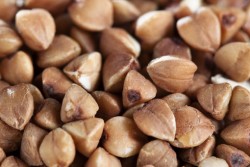Assists with Asthma
Home » Assists with Asthma
Looking forward to seeing you!
No asthma Attacks
The magnesium and vitamin E levels in buckwheat are both strong enough to support the claim that buckwheat protects children from developing asthma. Studies show that children who don’t receive high levels of grains or grain-like foods are much more likely to develop asthma because they are deficient in certain anti-inflammatory nutrients, like vitamin E and magnesium.

Preventing and Alleviating Asthma Symptoms
Buckwheat is considered a hypoallergenic food, which means that it is unlikely to cause allergic reactions. This is good news for asthma patients whose symptoms are worsened by food allergies and intolerances.
In addition to being an unlikely allergen, buckwheat delivers an abundance of magnesium, a mineral that helps treat constricted airways by relaxing the muscles around the bronchial tubes.
Buckwheat groats can be used to make breakfast porridge, and buckwheat flour (also known as beechwheat or saracen corn) can be used for making baked goods. Buckwheat groats contain only 92 calories per 100 grams and are loaded with protein, which makes them an excellent food also for those who are watching their waistline.

Prevention of asthma
Buckwheat have adequate amount of magnesium and Vitamin E levels which provides strong support to claim that Buckwheat prevents development of asthma in children. Children who do not consume high content of grains or grain like foods have high chances to develop asthma due to the deficiency of anti-inflammatory nutrients such as magnesium and Vitamin E.

Whole Grains Highly Protective against Childhood Asthma
According to the American Lung Association, almost 20 million Americans suffer from asthma, which is reported to be responsible for over 14 million lost school days in children, and an annual economic cost of more than $16.1 billion.
Increasing consumption of whole grains and fish could reduce the risk of childhood asthma by about 50%, suggests the International Study on Allergy and Asthma in Childhood (Tabak C, Wijga AH, Thorax).
The researchers, from the Dutch National Institute of Public Health and the Environment, Utrecht University, University Medical Center Groningen, used food frequency questionnaires completed by the parents of 598 Dutch children aged 8-13 years. They assessed the children's consumption of a range of foods including fish, fruits, vegetables, dairy and whole grain products. Data on asthma and wheezing were also assessed using medical tests as well as questionnaires.
While no association between asthma and intake of fruits, vegetables, and dairy products was found (a result at odds with other studies that have supported a link between antioxidant intake, particularly vitamins C and E, and asthma), the children's intake of both whole grains and fish was significantly linked to incidence of wheezing and current asthma.
In children with a low intake of fish and whole grains, the prevalence of wheezing was almost 20%, but was only 4.2% in children with a high intake of both foods. Low intake of fish and whole grains also correlated with a much higher incidence of current asthma (16.7%). compared to only a 2.8% incidence of current asthma among children with a high intake of both foods.
After adjusting results for possible confounding factors, such as the educational level of the mother, and total energy intake, high intakes of whole grains and fish were found to be associated with a 54 and 66% reduction in the probability of being asthmatic, respectively.
The probability of having asthma with bronchial hyperresponsiveness (BHR), defined as having an increased sensitivity to factors that cause narrowing of the airways, was reduced by 72 and 88% when children had a high-intake of whole grains and fish, respectively. Lead researcher, CoraTabak commented, "The rise in the prevalence of asthma in western societies may be related to changed dietary habits." We agree. The Standard American Diet is sorely deficient in the numerous anti-inflammatory compounds found in fish and whole grains, notably, the omega-3 fats supplied by cold water fish and the magnesium and vitamin E provided by whole grains. One caution: wheat may need to be avoided as it is a common food allergen associated with asthma.






